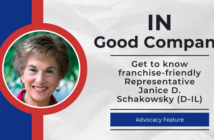by ASIF LAKHANI
The COVID-19 pandemic brought unprecedented levels of turmoil to the hospitality, travel, and tourism industries throughout the U.S., and hoteliers are feeling it bad. With no conventions, group meetings, or leisure travel taking place in the past few months, 645 U.S. submarkets showed a 100-percent decline in RevPAR in mid-April, according to data from STR.
While the situation is bleak, the industry still has some life: One in three economy-class rooms in the U.S. were still being sold in April, per STR. While better than nothing, the 33-percent occupancy rate falls far short of what hoteliers need to survive an economic downturn.
This column regularly details what tourism and travel bureaus in a specific city are doing in order to help hoteliers thrive in ordinary circumstances. Of course, the world as we knew it as recently as six months ago may never come back, but that doesn’t mean it has stopped completely. Necessity breeds innovation, and right now, tourism and travel bureaus across the U.S. are doing all they can to help hoteliers in ways big and small.
Practically every tourism or travel bureau across the country has a page of dedicated resources directing people to local hotels that are open, restaurants offering takeout, virtual tours of its museums and iconic places, and other ways to participate in relief efforts. In a time of physical distancing, social interactions can still happen online, and it is the responsibility of these gatekeeping institutions to serve their communities in tailor-made ways based on what makes each of them unique.
The Explore Asheville Convention & Visitors Bureau also collaborated with a local hotel association to spearhead the development of the Buncombe County Tourism Jobs Recovery Fund, where $5 million in grants will be used to help businesses reopen after shutdown. Applications for the fund were being accepted in late May. Local businesses and nonprofits that provide a “direct visitor experience” are eligible for grants of up to $50,000 to help with recovery, according to ACVB website.
Furthermore, the city has established the Asheville Pledge in which the safety of the community, visitors, and workers are the top priority. Doing so communicates a unified, understood way of operating in accordance with public health guidelines as restrictions are eased on the path to full recovery. Lastly, with some strategic planning, Explore Asheville was able to put some of its marketing campaigns on hold at the start of the pandemic and plans to use the millions of dollars it saved as a catalyst to kickstart tourism ad spending when the time is right.
“The challenge is when to invite people back to town because they may be coming from hot spot locations,” Brown said. She wasn’t speaking on behalf of hoteliers across the U.S., but she certainly could have been.
Elsewhere in the country, hoteliers are filing for federal Paycheck Protection Program (PPP) loans to minimal success rates. Multiple outlets report that just 9 percent of PPP funds went to hotels despite hospitality being one of the hardest-hit industries in the entire country. Those who have been fortunate to receive funds from the assistance program were having a hard time using it against the word of the law, which before the PPP Flexibility Act was signed into law, said 75 percent of the money received must be used to cover payroll and the rest put toward things such as debt services in order for the loan to be forgiven. On average, however, payroll accounts for far less of a hotel’s operating budget compared to the goods and services it offers, according to a report by Yahoo Finance. In early June, the PPP Flexibility Act changed many terms of the loan program, which is helping hoteliers around the country. AAHOA applauds the efforts of AAHOA Members and leadership for their tireless efforts to encourage the implementation of the critical legislation that will significantly improve the way hoteliers are able to seek PPP loan forgiveness, restrictions related to non-payroll expenses, access to payroll tax deferment, and more.
Visit Sacramento
Highlighted in February’s City Spotlight column, Visit Sacramento recently launched a new podcast on its website featuring conversations with local hospitality professionals and experts. Future episodes are slated to include hoteliers in California’s capital city who are preparing to reopen after being temporarily closed.
California was also the first state in the country to commit to the Project Roomkey initiative in which the homeless are offered free hotel rooms and meals to help slow the spread of the pandemic. Thousands of hotel rooms across the state are being used for the Project Roomkey relief effort. FEMA has agreed to cover 75 percent of the cost-share to make it work.
Visit Detroit
Visit Detroit has created a public Facebook group for tourism and hospitality professionals to gain access to unemployment resources, new job postings, and municipal initiatives that have been developed in response to COVID-19.
Des Moines, IA
Catch Des Moines, whose swift and strategic marketing campaigns were covered in the May issue of Today’s Hotelier, recently unveiled its next resource to help hoteliers: “Buy Now, Visit Later” hotel bonds. As of mid-May, current residents of and future visitors to Iowa’s capital city can make a $100 investment in a local hotel bond that will mature to $150 within 60 days. The credit can be used toward a future stay at one of the nearly 30 hotels participating in the program.
Phoenix, AZ
In the desert, Visit Phoenix organized a task force aligning resort and hotel team managers with member properties to help them execute administrative tasks such as rebooking meetings, sharing operational updates, and more. The goal is for hotels and resorts to use the Task Force “as an extension of their team.” Visit Phoenix is also selling “Together We Rise” T-shirts on its website and donating the proceeds to Another Round Another Rally, a nonprofit organization established to help hospitality employees endure financial hardship.
Asheville, NC
Located in the mountains of western North Carolina, Asheville has emerged as one of the hottest travel destinations in the Southeast in the past few years. The city also had the strictest lockdown restrictions in the entire state during the early stages of the COVID-19 pandemic. For example, only every other hotel room could be used. Fortunately, the pandemic struck during a lull in travel to the city, Explore Asheville President & CEO Stephanie Pace Brown said. In response, Explore Asheville approached the Buncombe County about creating a Business Response Plan and was given an opportunity to be part of the discussions on behalf of the tourism and hospitality industry in the area. The benefits included fair representation in the relief efforts and the ability to quickly disseminate information to impacted businesses via comprehensive webinars and toolkits.




